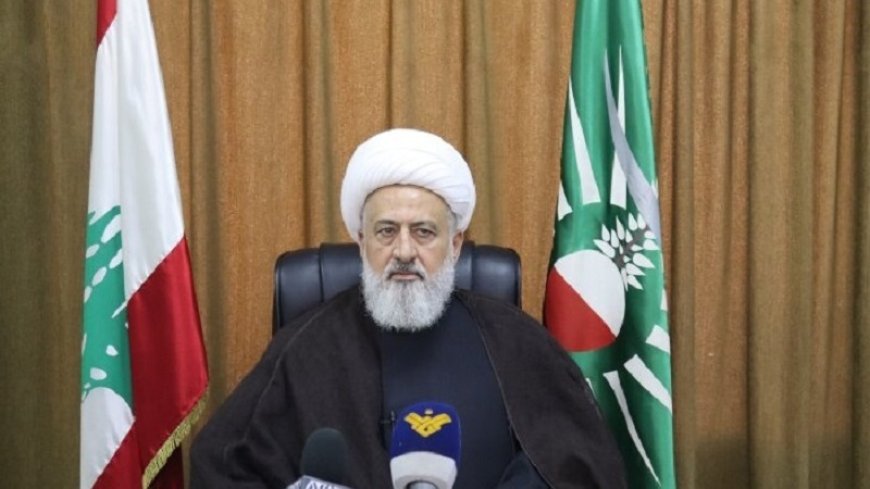Sheikh Ali Khatib, Vice President of the Supreme Islamic Assembly of Lebanon's Shiites, has emphasized the critical need for unity between Muslims and Christians in resisting what he describes as the Zionist colonial project in the Middle East. In an exclusive interview with the "Al-Ahd" website, Sheikh Khatib underscored that the West, under the guise of protecting minorities, is attempting to divide the region along religious and ethnic lines to achieve its colonial objectives.
Highlighting the current sensitive and historical situation, particularly in light of the ongoing Israeli-Palestinian conflict, Sheikh Khatib stated that the aggression against Palestinians has galvanized the Islamic Ummah, uniting them in support of the Palestinian cause, which he views as a global humanitarian issue.
"The unity of the Ummah is both a religious obligation and a practical necessity," Sheikh Khatib asserted. "In this difficult historical stage, the interests of the Ummah demand cohesion, especially in this war, which aims to break the will of the Islamic people. It is essential to adopt a united and coherent stance against the dangers that the Ummah faces."
He elaborated that the conflict in Palestine is not merely a Palestinian-Israeli war, but a broader struggle involving the entire Islamic world. "The war that the Palestinian Resistance is waging, alongside the Resistance forces of Lebanon, Iran, Iraq, and Yemen, is not just a Palestinian-Israeli conflict. It is a war of one nation against the enemies of humanity and fundamental principles. This is an existential battle for the Ummah, and there is no room for those who call for peace at the expense of justice," he said.
Sheikh Khatib also addressed the integral role of Christians within the Islamic Ummah, asserting that the term "Ummah" encompasses all religious communities in the region. He noted the historical contributions of Christians in the Middle East, from their roles in governance and policymaking to their influence in the centers of Islamic civilization, such as Baghdad, Cairo, and Jerusalem.
"Our region has long been the cradle of prophets and divine revelations, fostering a rich religious diversity that includes Judaism, Christianity, and Islam. Christians have always been an essential part of this nation, playing significant roles in public life and political decision-making. They should never be separated from the Ummah," Sheikh Khatib emphasized.
He warned against the West's efforts to create divisions between Muslims and Christians, noting that such attempts are part of a broader strategy to destabilize the region and justify the existence of Zionism in Palestine. "The fear and division being sown among different groups are artificial, designed to weaken the region and strengthen the enemy. However, the unity we see today, particularly in Gaza and Palestine, is the strongest proof that these conspiracies are failing," he said.
Sheikh Khatib praised the role of the Resistance in countering the Western-Zionist project, stressing that the struggle is not just against a small group of Jews in Palestine but against a global system led by the West. "The Resistance will continue because it reflects the true desires of the people to resist oppression. It is a movement that will endure as long as life itself continues," he concluded.
His comments come at a time of heightened tension and conflict in the Middle East, with many observers noting the growing solidarity among various religious and ethnic groups in opposition to what they perceive as external attempts to divide and control the region.














































